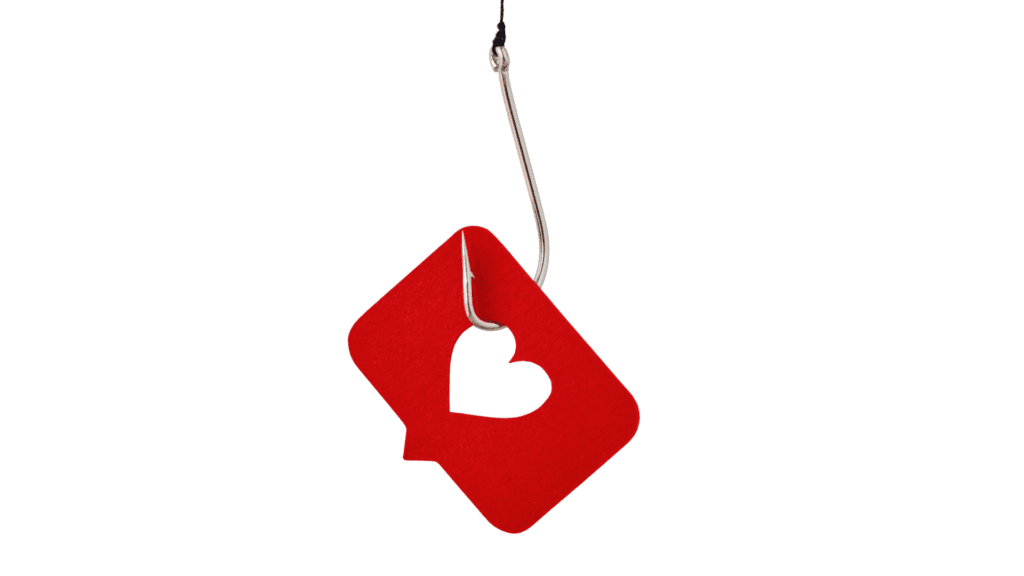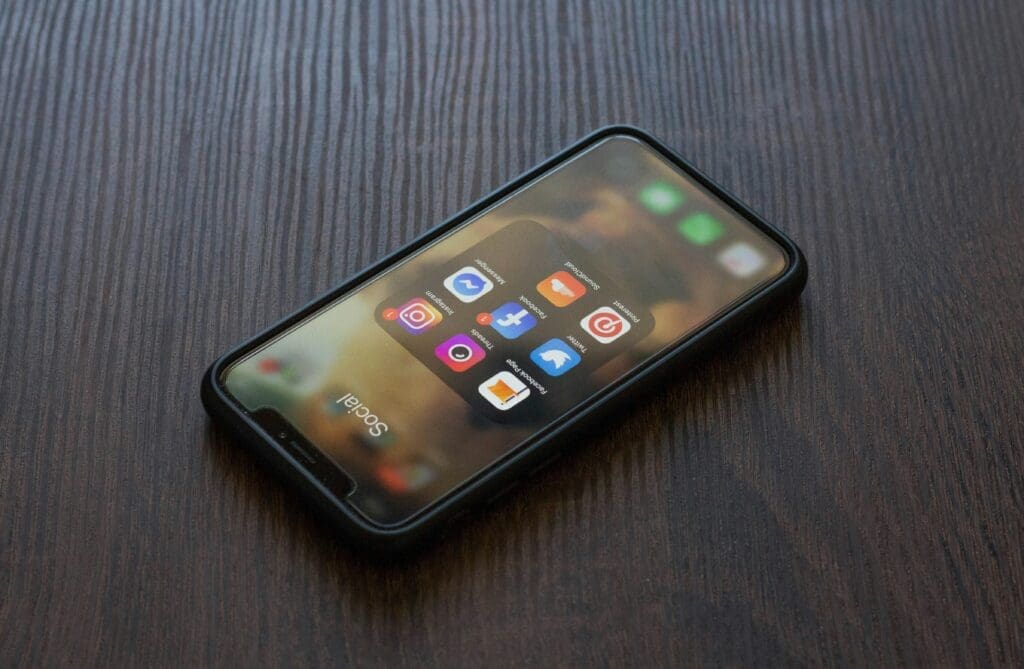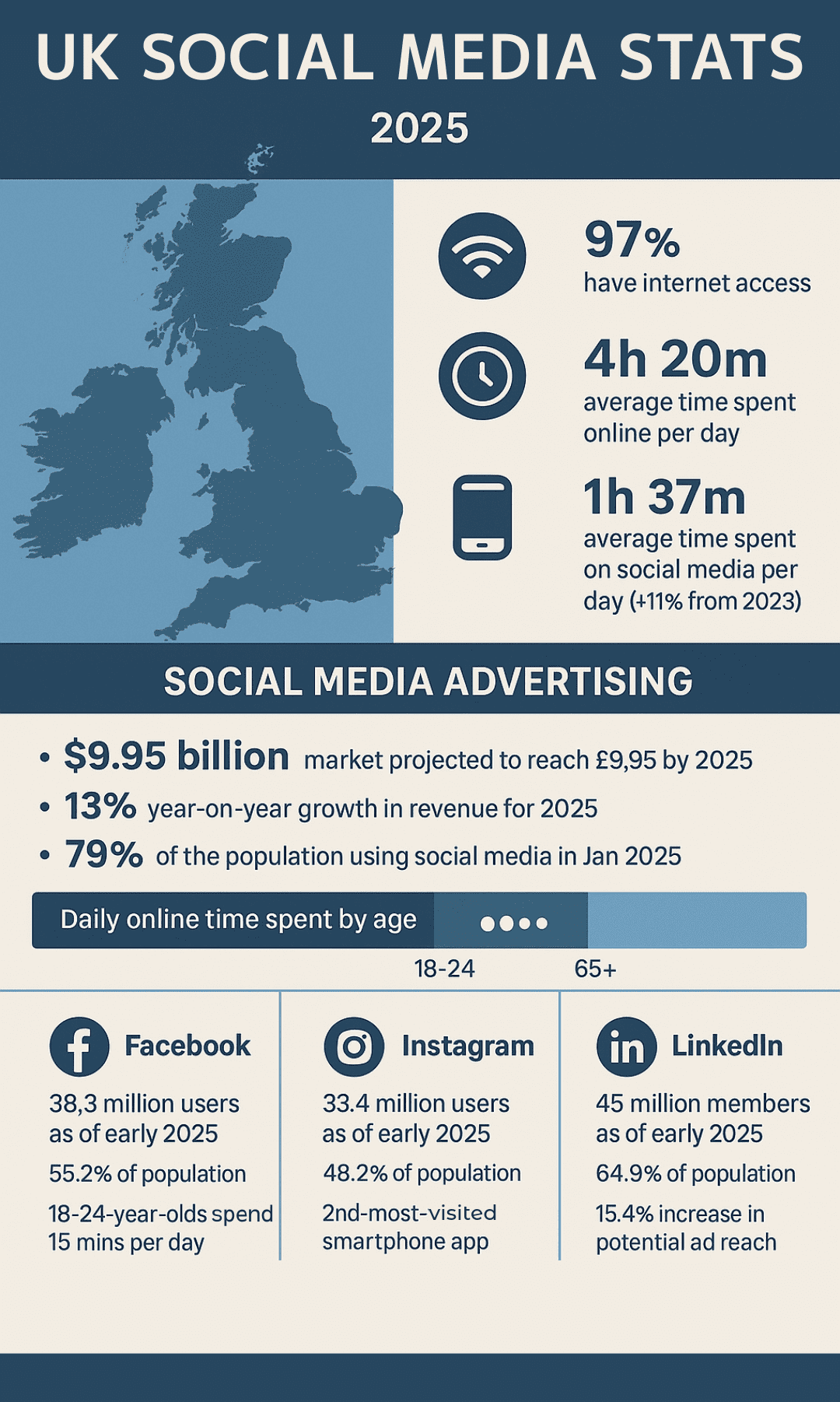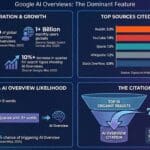It’s no secret that social media platforms such as Facebook and X (Twitter) have become increasingly filled with advertisements, spam, and bots over recent years.
The overabundance of spam and advertisements has led many individuals and businesses to distance their efforts and reduce platform spending, but is this justified? Is social media dead? And what is the future of social media?
Let’s dive into the details and find out.

Is social media dead? Are audiences falling out of love with this once-loved technology?
Social media just isn’t what it used to be. Remember the days of MySpace and Friends Reunited? Your own space, a place you could share with friends, your soundtrack playing on your profile, and a great place to connect with others. It didn’t feel as draining on your mental health either.
Modern platforms that once served to connect and bring people together have now become a place where people are becoming increasingly divided.
You don’t control what you see; the algorithms do
The likes of Facebook now focus on advertisements and algorithms, not people.
Many of these platforms have become dull and void of any personality, squashed by corporate minimalism, stripping out any personality for inoffensive designs and less fun gimmickry in the process. The experience feels soulless.
Meta seemingly knows this as Facebook and Instagram consider ditching ads in favour of a subscription-based system, reducing the problems with the overabundance of advertisements that are plaguing the social network.
But it’s not just the ads and algorithms that are causing people to leave these once beloved social networks. The problem runs deeper than that.
Over-politicisation is everywhere, there’s no escaping it. You can’t eat ice cream or buy a car without it being considered to be some sort of political act. It’s exhausting. An increasing number of people and businesses are choosing not to engage online anymore as a result.
The emphasis that was once put on pursuing Individuality has now been replaced by becoming part of social identity groups — many people functioning as a collective under a shared identity rather than nuanced individuals. As a result, there’s less individuality to share online, and views are more polarising, being black and white rather than shades of grey.

Social media is still a hit with young audiences. Photo by Ochir-Erdene Oyunmedeg on Unsplash
As humans, it’s in our nature to be tribal. It’s how we evolved and survived by choosing the tribes and communities with the highest chances of success. It’s hardwired into us, so we often find ourselves putting ourselves and others into categories, but individuality seems to have taken a backseat significantly.
It’s a factor to consider when assessing the death of social media as we know it.
The rise of niche communities and messaging platforms
Another factor that has played a part in the decline in the popularity of social platforms is the rise of niche communities and messaging platforms.
We seem to have come full circle. Remember the days of MSN Messenger and AIM? Chat and direct messaging apps with tons of personality, allowing you to customise your profiles and even share what music you were listening to?
Facebook Messenger aims to recapture some of the “on-the-fence” social media users who just want to communicate with friends without intrusive ads and WhatsApp is a similar solution, providing messaging and group chats. These messaging services are both owned by Mark Zuckerberg and Meta.
Today, Reddit caters to niche communities via subreddits, Discord provides communities through community-run servers, and it feels like social platforms generally are losing steam. But does this mean that it’s the end of social media and we should consider social media dead?
The Reddit Death Countdown: Joining the Ranks of Failed Social Networks or Bright Future Ahead?
Don’t delete your social media accounts just yet, though.
The truth is, there’s still a place for small businesses on social media. You just need the right marketing strategy to stand out. Ironic, isn’t it? After all this talk about the ad problems on Facebook, I’m about to tell you that ads can still work.
But here’s the thing, most of the ads on Facebook now are lost in the noise and forgettable.
The real successes come from organic content, smart storytelling, and knowing your audience. We’ve written before about how to create viral content without spending a penny on paid ads. That’s the ideal balance you should aim for – being memorable without being invasive.
We’ve all experienced the fake news problem in recent years across all social media websites. Misleading posts —with half-truths at best, and full-on lies at worst captivate readers who consume this information, assuming it to be true. Conversely, some would incorrectly label news items as “fake news” when trying to dismiss reports that conflict with their own narrative.
This, of course, is what resulted in Meta creating fact-checkers, even though they didn’t seem to work well enough. The waters are becoming increasingly muddied with the rise of AI and deep fakes. This technology not only impacts news, but also has the potential to be used for sophisticated and believable scams.
An example of how believable AI-generated content can be is seen via this (amongst many) reddit post.
Similar AI content is seen in the advertising of mobile phone games using fake imagery and even using copyrighted material. We’re entering into a new era where seeing is not enough to believe anymore. Even truth feels negotiable and somehow subjective.
Ironically, this increase in hyperreal fakery is creating a counterculture of hyper-scepticism. Tech-savvy and even casual users alike are becoming increasingly skeptical when consuming content on social media as a result of being burnt by fake news. The whole “fool me once, shame on me” proverb comes to mind.
Social media is a term. It describes an ever-changing environment where friends, family, businesses, and individuals share their experiences and connect with others.
It’s important to separate the concept of social media sites and networks in their current form from social media itself as a concept.

Connection is still fundamental to success on social media. Photo by NordWood Themes on Unsplash
There will always be a hunger for forming connections and relationships with others. It’s worth re-emphasising that it’s how we’ve lived for hundreds of thousands of years — albeit in smaller numbers and through in-person social interactions — but it’s a need we have as people.
Where there are people and interaction, there’s an opportunity to provide solutions via products or services.
The bloat of advertising on current social media platforms doesn’t mean advertising is a bad thing at all; it’s just the ratio of ads to organic content, and the methodology that is wrong.
Indirect marketing, working with influencers in ethical and authentic ways, and providing real value through providing solutions to common problems, is the way to win with modern social media and advertising.
This comes as a result of knowing your audience, understanding their wants and needs, and being there to provide them when needed.
The statistics don’t lie
Despite the negative sentiment amongst social media users, the statistics don’t lie.
We continue to see an increase in time spent online, with the majority of users active with social media accounts being under 30 years old. To put this into context, here’s a infographic snapshot of current UK social media usage and online activity in 2025 — the data might surprise you.

Future of social media infographic – key stats. Data source: Sprout Social
An excellent way to illustrate how successful businesses engage without being invasive online is TikTok.
Short-Form Video Platforms: YouTube Shorts vs TikTok vs Instagram Reels
We’ve written before about RyanAir succeeding with their unorthodox style of communication with audiences, and this is just one example of many.
Brands regularly chime in on relevant videos that discuss their product and brand, and generally do well in the comments section (in terms of the like-to-dislike ratio). TikTok is about more than the videos themselves, with an online community that provides hilarious feedback in ‘comments sections’, and the comments are part of the draw to TikTok.
Being a successful brand on social media is about more than just who can shout the loudest, it’s about listening, connecting with your audience, and understanding them.
Embrace a community-first philosophy
Another of our articles covers the marketing successes of Logan Paul and KSI, and how their business ventures were successful largely due to the strong communities they have built over the years.
KSI & Logan Paul Marketing Strategy: A Rebranding & Modern Marketing Masterclass
These are real people who share their experiences online, often to a fault, including their successes, failures, and mistakes.

Community and forming a connection is hugely important on social media. Photo by Vonecia Carswell on Unsplash
People want people, not faceless brands
For more than a decade, most businesses have used a similar strategy for social media.
What once worked with traditional social media hashtags and surface-level social listening now feels outdated now. Your strategy likely needs to revert to basics. That’s not to imply that hashtags and social listening aren’t important; it just means that they should be part of a more comprehensive community-first strategy.
Parasocial relationships are a big part of current and future social media, with more people relying on their favourite influencers, vloggers, or content creators rather than faceless corporate brands.
Creator-led commerce, such as Feastables from MrBeast, or PRIME originate from a community-first strategy, delivering the product after developing trust with their audience and demographic.
What once appealed to our aspirations to sell products or services in the early days now relies on the relatable. Audiences feel emotionally connected to content creators due to the intimate and private nature of the content they produce (VoDs and Vlogging).
“People buy products with emotions and justify them with logic”
— Zig Ziglar
It’s time for brands and advertisers to stop striving for cold, clinical, faceless “perfection” and embrace their authentic selves. That’s not to imply you should be controversial for the sake of it, but be authentic. Audiences can sense “real” — younger generations even more so.
On the topic of still needing people in the age of AI, make sure you also check our our is web design dead article.
New platforms may come and go, change and evolve, but the need to connect with others will always remain.
We may become jaded by the tools and the friction points that come with platforms driven by ad-first business models, but ultimately, new tools and platforms will emerge that favour authentic connection above all else.
The future of successful social media brands is all about authenticity and connecting with the minds and emotions of their audience. Brand mascots and influencers that engage in conversations using a balanced approach, abiding by platform-specific culture and etiquette, will win big.
It’s no longer a one-size-fits-all solution when marketing on social media platforms. Businesses will become successful not just because of their marketing strategy, but because of how they show up – human, honest, and with rough edges.
Social media isn’t dead, it’s just done pretending to be perfect.
What are your thoughts about the future of social media? Is social media dead, or has social media as we know it just run its course? Let us know in the comments section below, or across any of our social channels. We’d love to hear your thoughts and opinions.






0 Comments